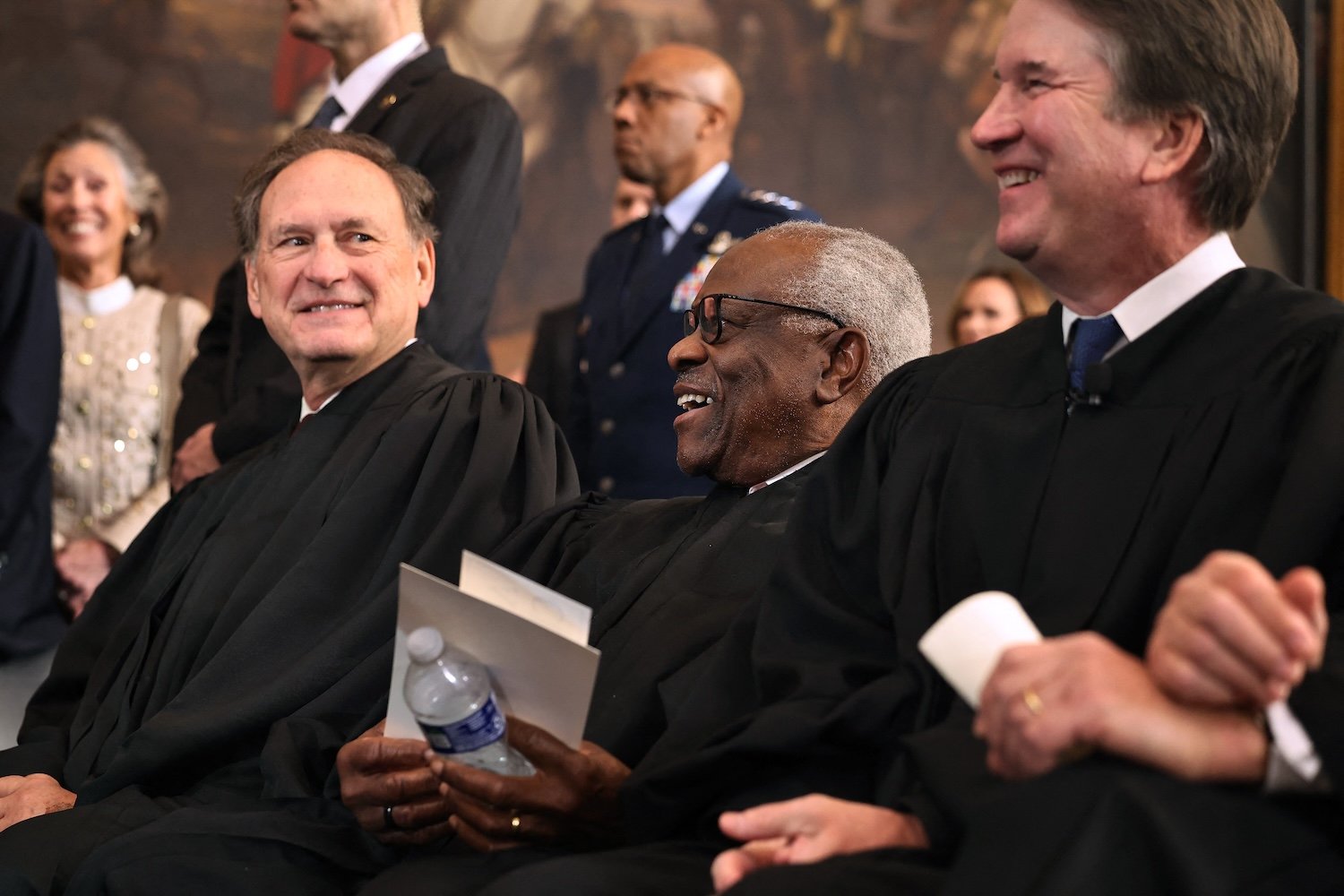- Messages
- 34,410
The first of many has reached SCOTUS …

 www.theguardian.com
www.theguardian.com
“… The justices said in an unsigned order that Hampton Dellinger, head of the office of special counsel, could remain in his job at least until Wednesday. That’s when a lower-court order temporarily protecting him expires.
…With a bare majority of five justices, the high court neither granted nor rejected the administration’s plea to immediately remove him. Instead, the court held the request in abeyance, noting that the order expires in just a few days.
US district judge Amy Berman Jackson has scheduled a Wednesday hearing over whether to extend her order keeping Dellinger at his post. The justices could return to the case depending on what she decides.
Conservative justices Neil Gorsuch and Samuel Alito sided with the Trump administration, doubting whether courts have the authority to restore to office someone the president has fired. Acknowledging that some presidentially appointed officials have contested their removal, Gorsuch wrote that “those officials have generally sought remedies like backpay, not injunctive relief like reinstatement”.
Liberal justices Sonia Sotomayor and Ketanji Brown Jackson would have rejected the administration’s request.
…The new administration already has indicated it would seek to entirely overturn the Humphrey’s Executor decision, which held that Franklin D Roosevelt could not arbitrarily fire a Federal Trade Commission member during his presidency. Trump has taken aim at people who are on the multimember boards that run an alphabet soup of federal agencies, including the National Labor Relations Board and the Merit System Review Board.
Like Dellinger, they were confirmed to specific terms in office and the federal laws under which the agencies operate protect them from arbitrary firings. Lower courts have so far blocked some of those firings. …”
US supreme court temporarily blocks firing of head of federal whistleblower protection office
Trump administration is seeking to oust Hampton Dellinger, head of the office of special counsel
US supreme court temporarily blocks firing of head of federal whistleblower protection office
Trump administration is seeking to oust Hampton Dellinger, head of the office of special counsel
“… The justices said in an unsigned order that Hampton Dellinger, head of the office of special counsel, could remain in his job at least until Wednesday. That’s when a lower-court order temporarily protecting him expires.
…With a bare majority of five justices, the high court neither granted nor rejected the administration’s plea to immediately remove him. Instead, the court held the request in abeyance, noting that the order expires in just a few days.
US district judge Amy Berman Jackson has scheduled a Wednesday hearing over whether to extend her order keeping Dellinger at his post. The justices could return to the case depending on what she decides.
Conservative justices Neil Gorsuch and Samuel Alito sided with the Trump administration, doubting whether courts have the authority to restore to office someone the president has fired. Acknowledging that some presidentially appointed officials have contested their removal, Gorsuch wrote that “those officials have generally sought remedies like backpay, not injunctive relief like reinstatement”.
Liberal justices Sonia Sotomayor and Ketanji Brown Jackson would have rejected the administration’s request.
…The new administration already has indicated it would seek to entirely overturn the Humphrey’s Executor decision, which held that Franklin D Roosevelt could not arbitrarily fire a Federal Trade Commission member during his presidency. Trump has taken aim at people who are on the multimember boards that run an alphabet soup of federal agencies, including the National Labor Relations Board and the Merit System Review Board.
Like Dellinger, they were confirmed to specific terms in office and the federal laws under which the agencies operate protect them from arbitrary firings. Lower courts have so far blocked some of those firings. …”


